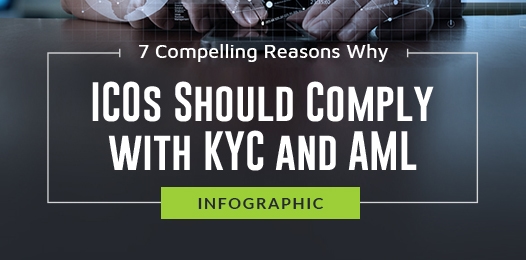
2017 has been the year of initial coin offerings (ICOs) — an innovative new form of financing that involves issuing a new digital token to early investors of a (usually) blockchain-based project in exchange for bitcoin or ether.
Since the start of the year, ICOs have raised over $2 billion in funding. This surpassed the amount raised for more traditional VC funding of bitcoin and blockchain startups year-to-date.
As Alexander Lielacher noted in his post on the current state of ICO regulations across the globe:
“One of the reasons why ICOs have become such a popular method of funding is because this market segment was entirely unregulated until this summer. Anyone with sufficient technical knowledge could launch their own digital token linked their existing business or startup idea. However, that is now changing.”
The laws vary significantly by country. Some countries have outright banned ICOs (e.g., China, South Korea); others are deliberating on whether a token sale represents a security and this obviously depends on the type of token sale. The prevailing wisdom seems to be: If it looks like a duck, swims like a duck, and quacks like a duck, then it’s probably a duck.
Unfortunately, many budding entrepreneurs considering an ICO don’t consider what this means from a compliance perspective. But, the regulators have a legitimate reason to thwart corruption and money laundering while protecting its investor class. Given this murky landscape, we’re seeing more and more ICOs opting to comply with KYC (know your customer) and AML (anti-money laundering) requirements during a token sale — even when they’re not mandated to do so.
That’s why we created this infographic:

There are real consequences and risks of non-compliance though they may not be readily apparent. Despite disclaimers from the ISO issuers in their white paper or on their websites that “they are not issuing a financial instrument” or “the token sale is not subject to any laws,” regulators may disagree if your token behaves like a duck.
In fact, Swiss Regulators have announced investigations into several past ICOs and more recently the SEC announcing investigations into ICOs purportedly backed by real estate and diamonds-based tokens. While many ICOs are absolving themselves from the thorniness of murky markets by simply excluding those countries (and their citizens) from investing/participating in the ICO.
But, this is short-sighted if your objective is to maximize your project’s funding.
As Nick Ayton pointed out in a recent Cointelegraph post, “Institutional money is itching to get involved in crypto, in Blockchain, in this emerging market that offers returns traditional opportunities don’t offer. But they need to see certain things done properly so that they are allowed to invest: VCs, Investment Banks, Hedge Funds will invest in the right ICO…as they do IPOs.”
By embedding AML/KYC compliance checks, it’s far easier to identify your investors and for investors to disclose their accredited status — providing an added layer of transparency that any would-be investor appreciates.
But, these simple steps also serve to better document the source of capital flowing in from a token sale. It’s inevitable that bigger, more institutional investors will have concerns about criminal money and will want some assurances. It just doesn’t cut it to block certain territories from an ICO since IP addresses can be easily spoofed.
There’s a lot of noise and a lot of scammers competing for our mindshare and wallet share. Adding identity verification to a token sale is increasingly becoming a no-brainer for protecting your investors, increasing your credibility, and attracting bigger money.
Want to take a deeper dive, we encourage you to check out our eBook: ICOs and Compliant Token Sales – A Best Practices Guide. Get your full copy here: http://go.jumio.com/ico-guide.
